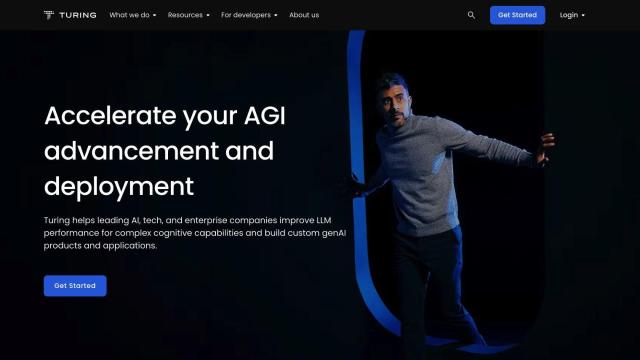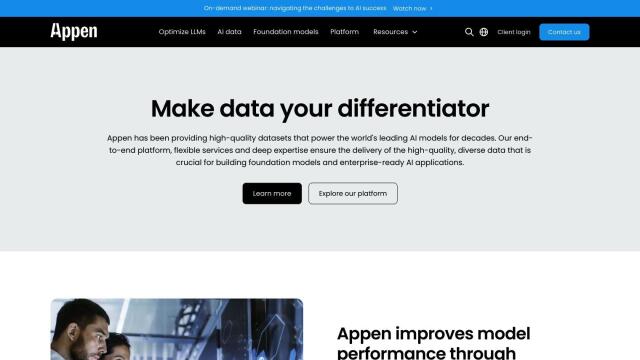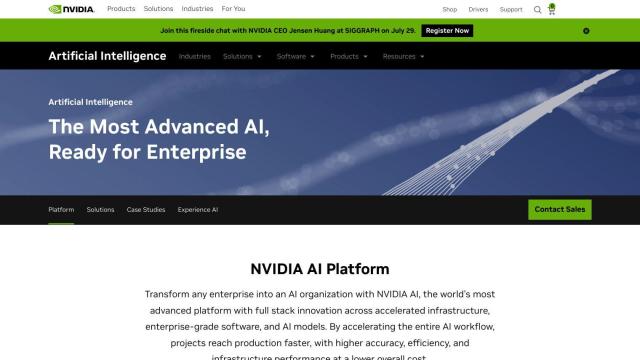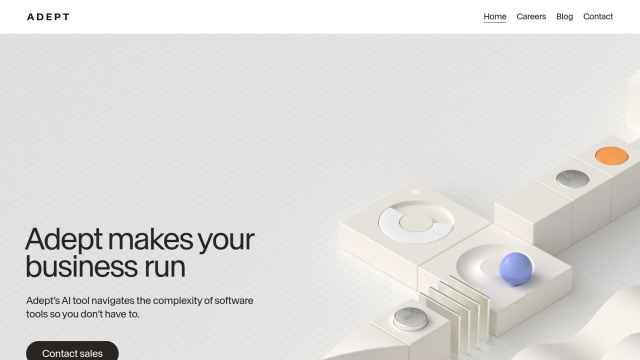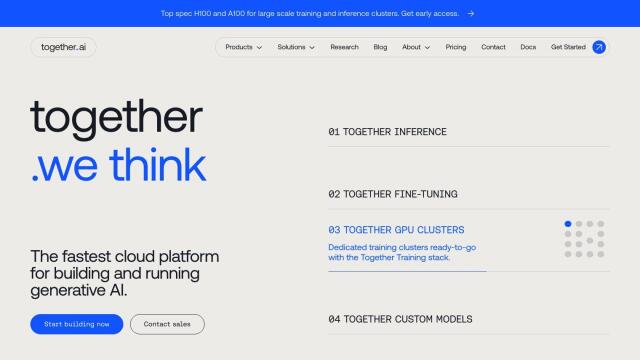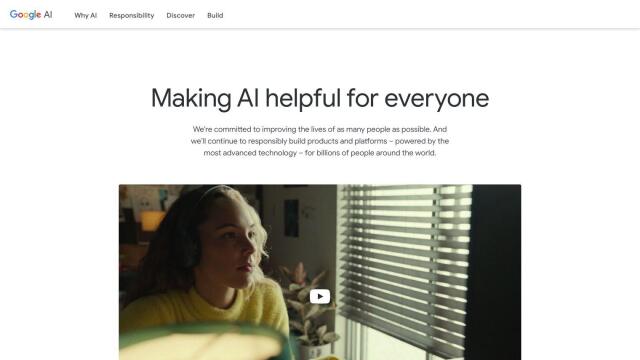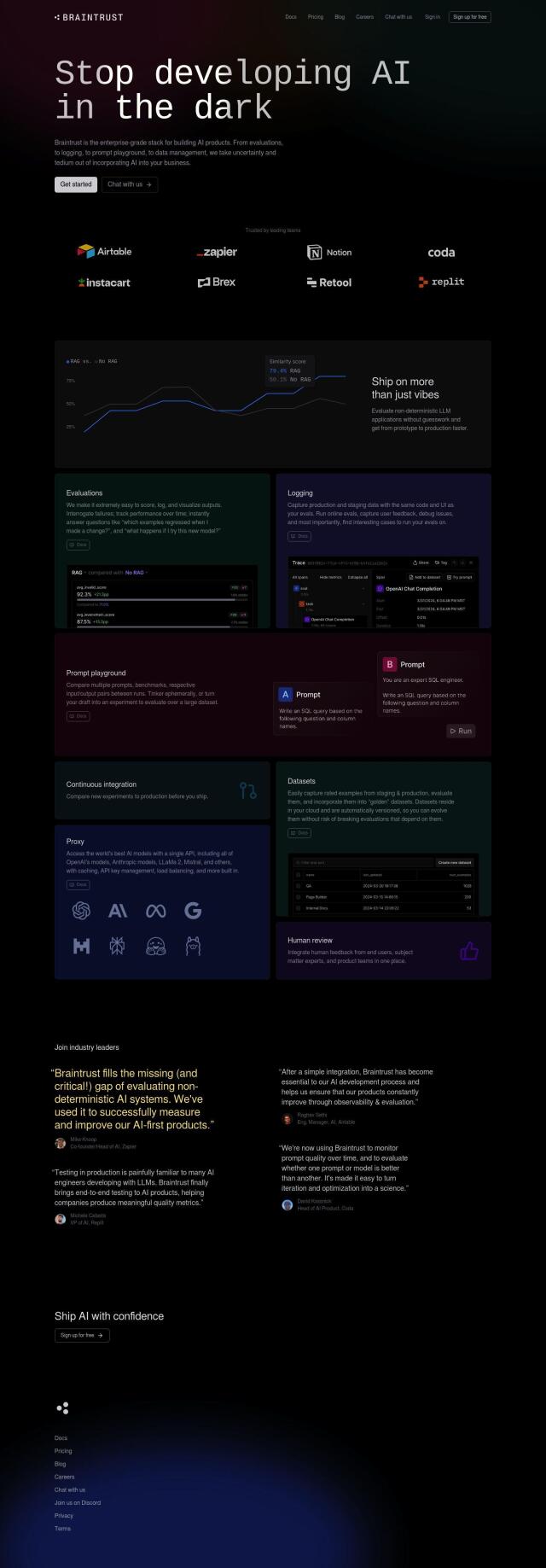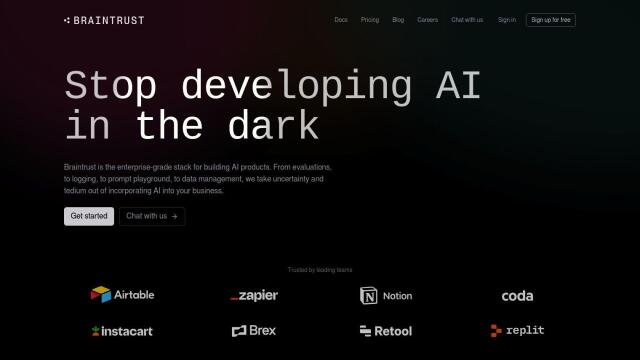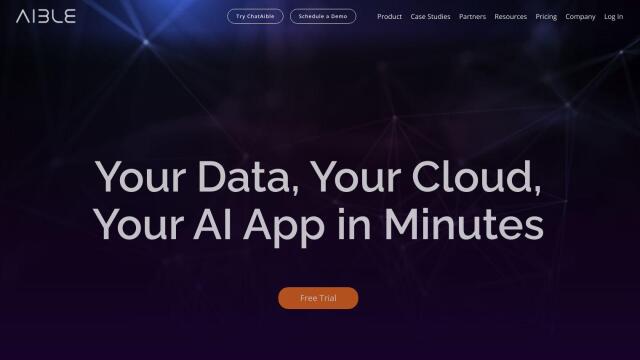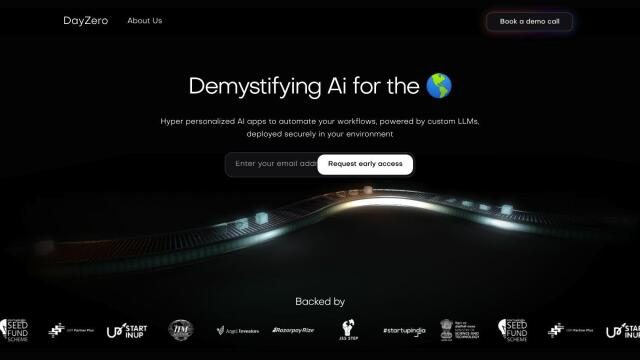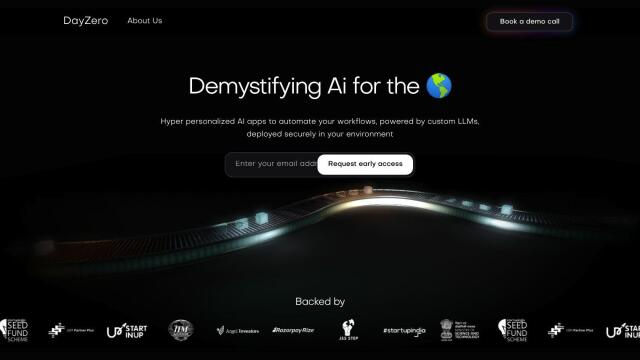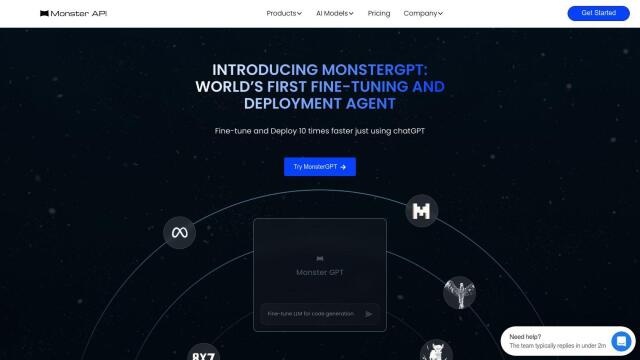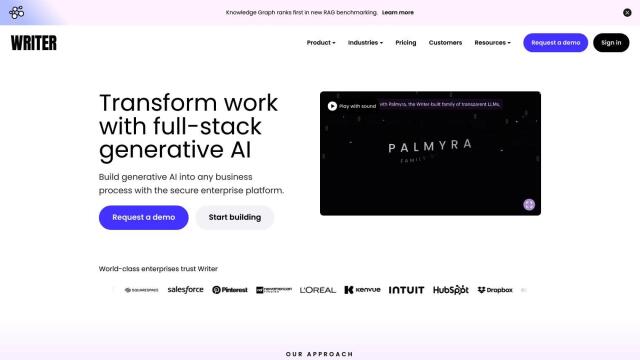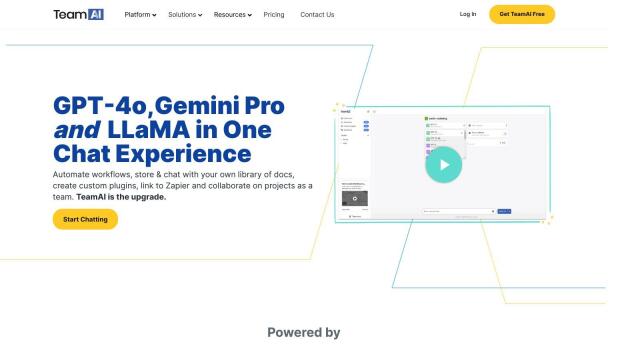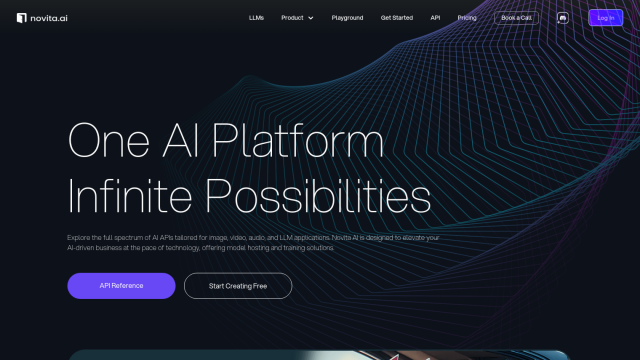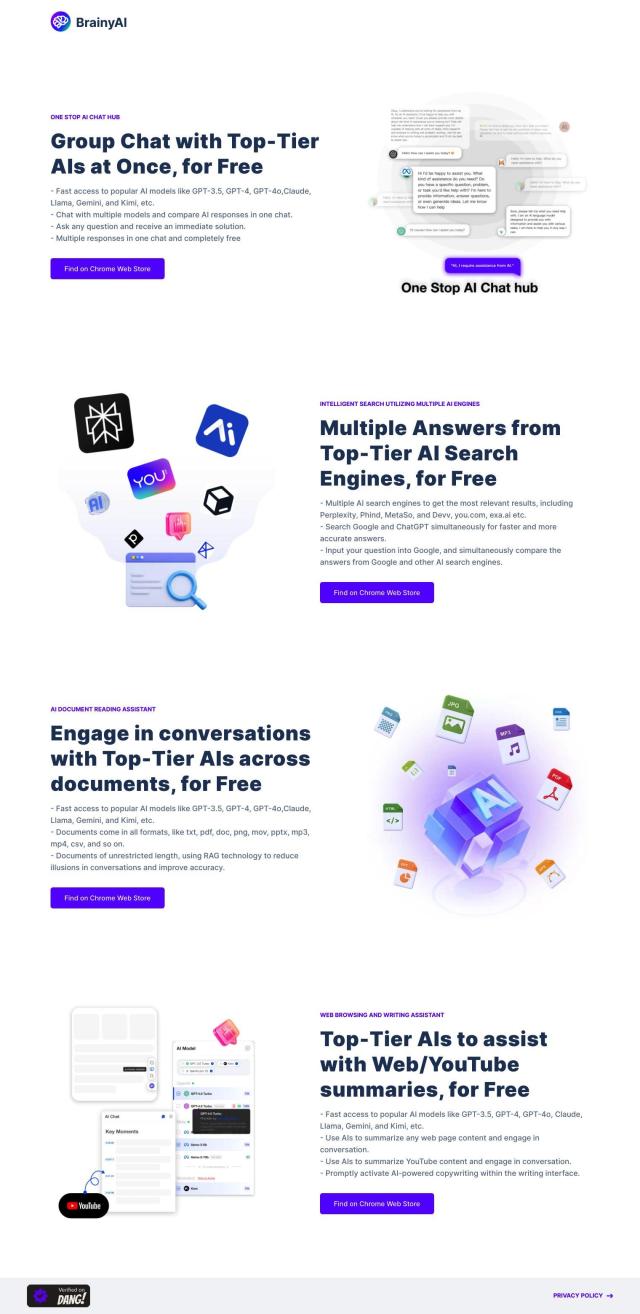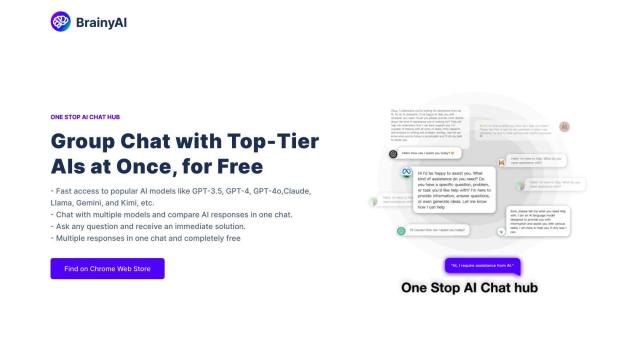

ThirdAI
If you're looking for a Turing alternative, ThirdAI is another option. It's a customizable LLM platform that doesn't require hardware like GPUs, TPUs or ASICs. It can be used for tasks like document intelligence, customer experience and generative AI for summarizing documents. It performs well on benchmark tests like sentiment analysis and information retrieval, with high accuracy and low latency.


Abacus.AI
Another option is Abacus.AI, which lets developers create and run large-scale AI agents and systems with generative AI and other neural network technology. Abacus.AI products include ChatLLM for end-to-end RAG systems, AI Agents for automating complex processes, and a range of predictive and analytical tools. It can be used for real-time forecasting, anomaly detection and high availability, and is designed to improve customer service and business operations.


LastMile AI
For developers who need a full-stack developer platform, LastMile AI is an option. It comes with features like Auto-Eval for automated hallucination detection, RAG Debugger for optimization and AIConfig for managing prompts and model parameters. It supports multiple AI models, and it's got a notebook-inspired environment called Workbooks for prototyping and app development. That makes it easier to generate production-ready generative AI apps.


Dify
Last is Dify, which is an open-source foundation for generative AI apps. It includes a visual Orchestration Studio for designing AI apps and customizable LLM agents for secure, fast deployment. Dify has multiple pricing tiers, so it's an option for businesses and individuals who want to add AI securely and efficiently to their operations.

